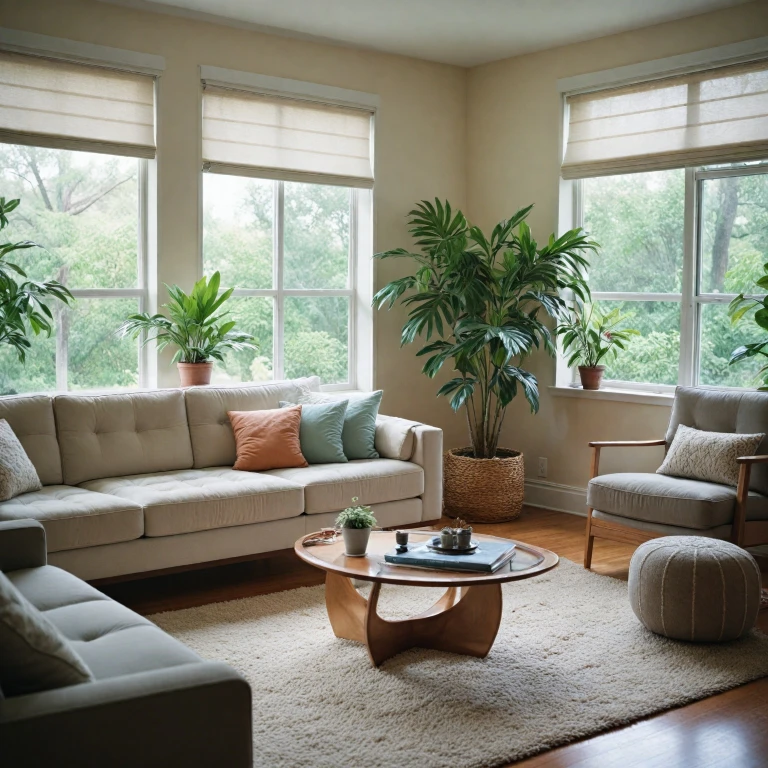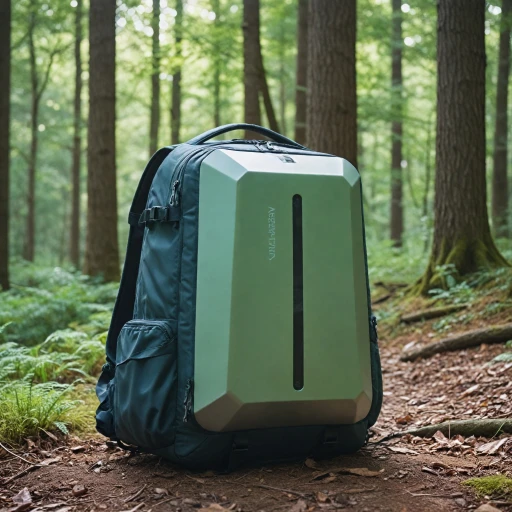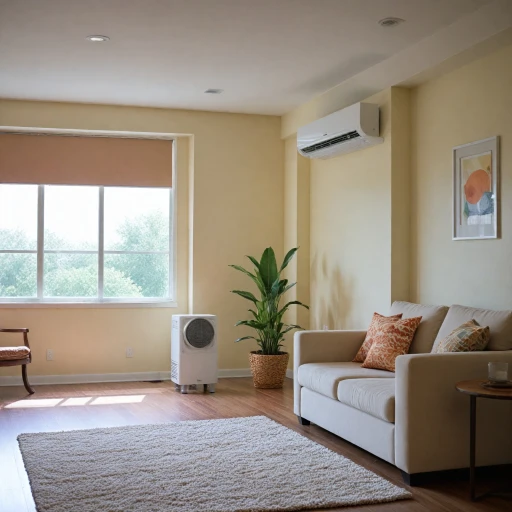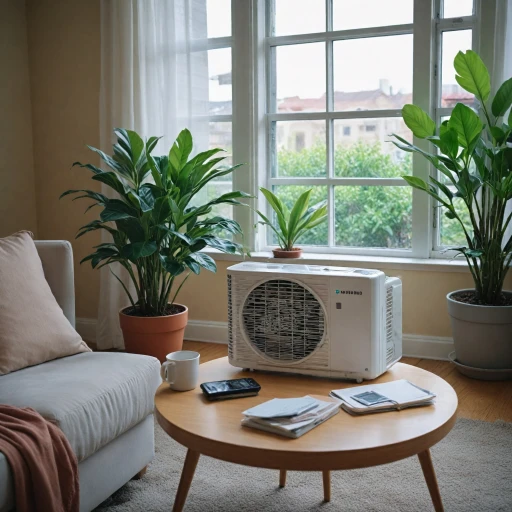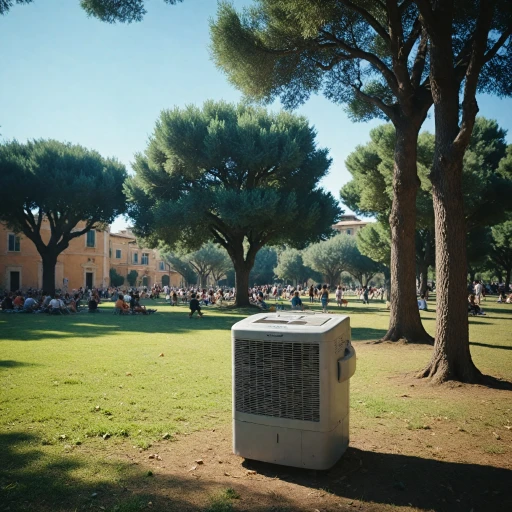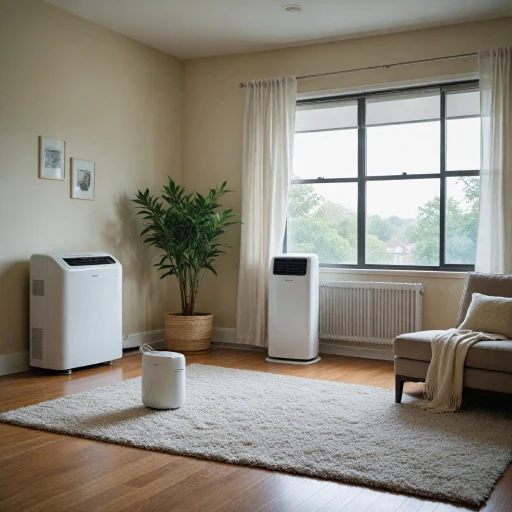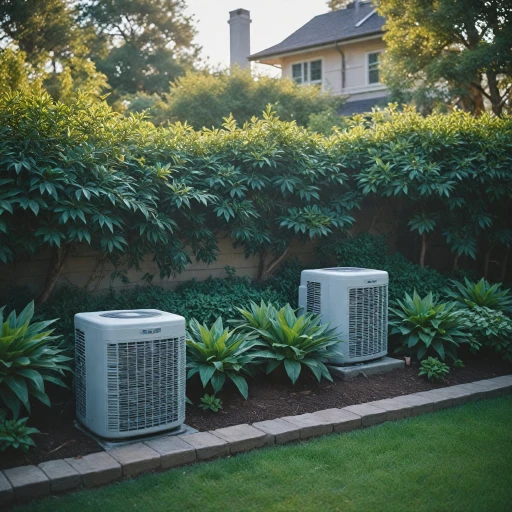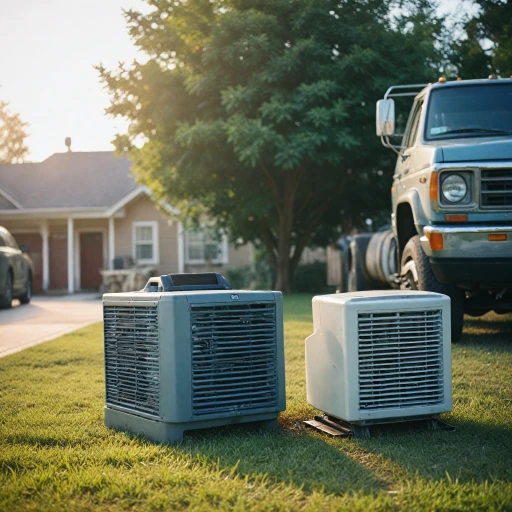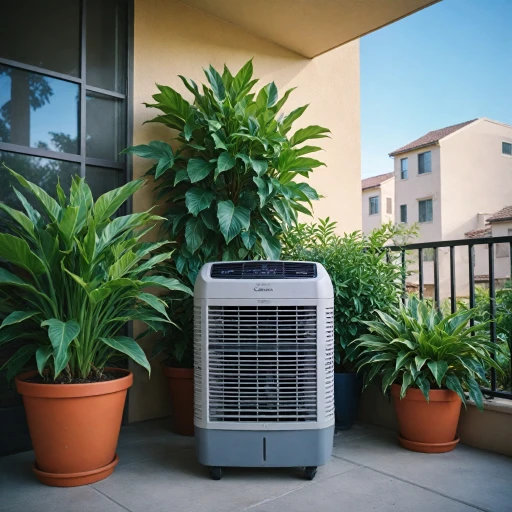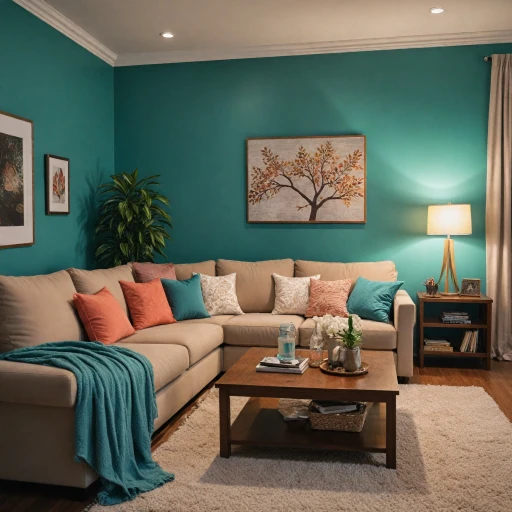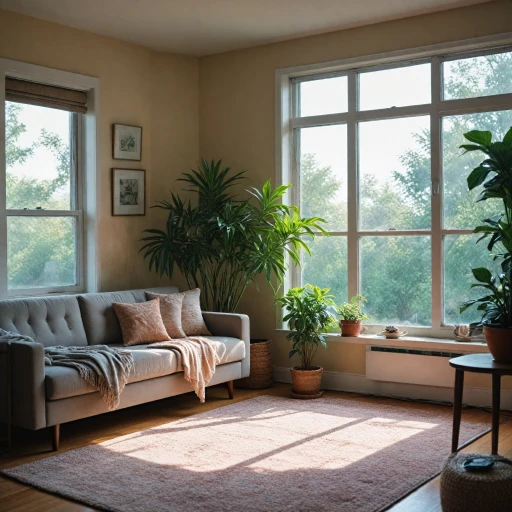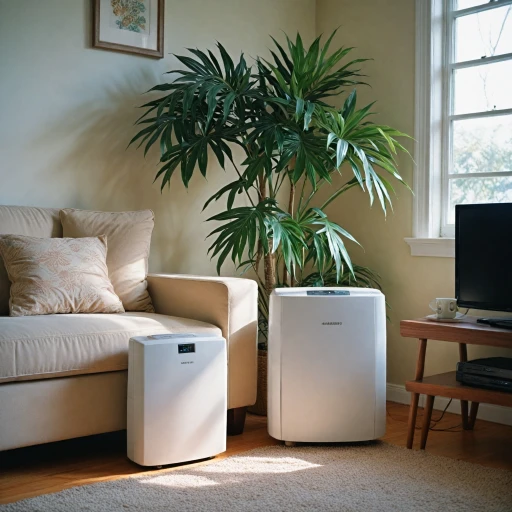
Understanding Portable AC Units with Heat Pumps
Introduction to Portable AC Units with Heat Pumps
Portable air conditioners with heat pumps are versatile devices that provide both cooling and heating solutions, making them ideal for year-round use. These units are particularly beneficial for those who need a flexible climate control option without the hassle of permanent installation. Understanding how these units work can help you make an informed decision when considering a purchase.
How They Work
A portable AC unit with a heat pump operates by transferring heat from one place to another, using a refrigeration cycle. During the summer, it extracts heat from the room and expels it outside, providing cooling. In the winter, the process reverses, drawing heat from the outside air and bringing it indoors. This dual functionality makes it a cost-effective choice for maintaining a comfortable environment throughout the year.
Types of Portable AC Units
- Single Hose: These models use one hose to expel warm air outside, which can be less efficient but are often more affordable.
- Dual Hose: Featuring two hoses, one for intake and one for exhaust, these units typically offer better efficiency and faster cooling.
- Inverter Models: These units adjust their speed based on the room's temperature, providing more precise climate control and energy savings.
Considerations for Choosing a Model
When selecting a portable AC unit with a heat pump, consider the BTU rating, which indicates the unit's cooling and heating capacity. A higher BTU rating is suitable for larger rooms, while a lower rating is ideal for smaller spaces. Additionally, look for features like remote control, energy efficiency ratings, and compatibility with window kits for easy installation.
For those interested in compact options, exploring the most compact portable air conditioners can provide insights into space-saving models that don't compromise on performance.
Advantages of Using a Portable AC Unit with Heat Pump
Why Choose a Portable AC with Heat Pump?
Portable air conditioners with heat pumps offer a versatile solution for all your year's cooling and heating needs. These units adapt well to different environments, making them a popular choice for homeowners and renters alike.Year-Round Comfort
One of the primary benefits of a portable AC unit with a heat pump is the ability to use it throughout the year. Whether it's scorching hot or uncomfortably cold, you can rely on these units to maintain comfort across seasons. The dual functionality eliminates the need for separate heating and cooling devices, providing a cost-effective and space-saving solution.Energy Efficiency
Air conditioning systems with inverters are known for their improved energy efficiency. By utilizing the heat pump technology, these portable air conditioners ensure efficient energy expenditure, reducing electricity bills. This makes them an excellent choice for energy-conscious individuals seeking to minimize their environmental impact while maintaining comfort.Space-Saving Design
Portable air conditioners, such as the black decker models, offer a compact and convenient solution, especially for smaller spaces. They can be easily moved from room to room, or stored away when not in use, freeing up valuable space.Ease of Installation
With a simple installation process that often includes a window kit for venting, these units are particularly favored by those who lack the expertise or time for complex installations. This gives you the flexibility to reposition your air conditioner as needed without hassle.Comparing Models
When considering options, it is crucial to compare price, BTU output, and additional features such as a remote control or a dual hose system. This will ensure you select the best portable heat pump model fit for your specific needs and budget. With all these advantages, it's no wonder many people are turning to portable ACs with heat pumps as their go-to climate control solution. Learn more about the benefits of portable outdoor air conditioners here.Key Features to Look for in a Portable AC Unit with Heat Pump
Essential Features for Optimal Climate Control
When choosing the best portable air conditioner with a heat pump, several key features can enhance your experience and ensure efficient cooling and heating. Evaluate these factors before making a decision:- BTU Rating: The BTU (British Thermal Unit) rating provides insight into the unit’s cooling or heating capacity. Higher BTUs mean the unit can effectively cool or heat larger spaces, making it crucial to match the BTU with your room size to avoid overworking the unit or inadequate performance.
- Dual Hose vs. Single Hose: Dual hose models typically perform more efficiently when cooling because they pull in and expel air through separate hoses, reducing the unit's workload. Single hose systems are lighter and often less expensive, but they may not offer the same level of energy efficiency.
- Window Kit Compatibility: Portable units generally include a window kit for venting air. Confirm that the portable AC unit with heat pump is compatible with your window type and can be securely installed.
- Heating and Cooling Modes: The versatility of a unit is accentuated by its ability to provide year round climate control. Check for a switchable mode from cooling to heating, ensuring comfort during different seasons.
- Remote Control and Programmable Settings: For added convenience, models featuring a remote control or programmable thermostat allow you to operate and customize settings without constantly adjusting the unit.
- Inverter Technology: An inverter or mini split system can significantly improve energy efficiency by adjusting compressor speed in response to the room’s temperature, though typically found in higher-end models.
Energy Efficiency and Cost Considerations
Evaluating Energy Efficiency in Portable AC Units with Heat Pumps
When it comes to portable AC units with heat pumps, energy efficiency is a crucial consideration. The best models are designed to provide effective cooling and heating with minimal energy consumption, which can significantly impact your utility bills.
Several factors influence energy efficiency in these units:
- BTU Ratings: The British Thermal Unit (BTU) rating gives an idea of the cooling or heating capacity of the unit. Higher BTU ratings generally denote a more powerful portable air conditioner, but they must be balanced with the room size to avoid energy wastage.
- Inverter Technology: Some portable air conditioners, including models from leading brands, feature inverter technology. This allows the unit to adjust its speed to maintain the desired temperature, enhancing efficiency compared to traditional models.
- Dual Hose vs. Single Hose: Dual hose models tend to be more efficient than single hose units since they use one hose to intake air and another to expel it, maintaining indoor air quality without overworking the system.
- Energy Star Certification: Look for the Energy Star label on portable AC units with heat pumps. This certification ensures that the unit meets or exceeds stringent energy efficiency criteria, providing assurance of its cost-effectiveness over time.
Considering Costs and Long-term Savings
The initial price of a portable air conditioner with a heat pump can vary widely, depending on features such as remote control capabilities, dual hose structure, and integrated heating cooling functionalities. However, while selecting a cost-effective model is important, it’s equally essential to consider potential long-term energy savings.
Investing in an energy-efficient unit can lead to substantial savings on cooling and heating bills year-round. Be sure to measure the costs associated with running the air conditioner by checking its energy consumption against your local electricity rates.
Energy efficiency also intertwines with durability. Well-maintained, high-quality portable AC units can serve efficiently for many years, making them a reliable choice for both cooling and heating requirements.
Effective Use of Window Kits
Efficiency extends beyond the unit itself. A well-installed window kit can enhance the effectiveness of a portable air conditioner's performance by preventing hot air from re-entering the room. It's imperative to ensure that the window kit is compatible with your specific model and properly installed to maximize energy efficiency.
Choosing the right portable AC units with heat pumps can deliver comfortable indoor air temperatures, month after month, without unnecessarily high utility expenses. Balancing the initial costs with energy efficiency and long-term savings is key to making an informed decision.
Maintenance Tips for Optimal Performance
Tips for Keeping Your Portable AC with Heat Pump Running Smoothly
Regular maintenance of your portable air conditioner with a heat pump is essential to ensure optimal performance. Here are some practical tips to help maintain your unit effectively:- Clean Filters Regularly: The air filters in your portable AC play a critical role in maintaining air quality and efficiency. Dust and dirt buildup can restrict airflow, decreasing the unit's performance. Check filters every couple of weeks and clean them as recommended by the manufacturer. Most models offer easy access to filters which can often be rinsed with water and dried thoroughly before reinsertion.
- Inspect and Clean Coils: Both the evaporator and condenser coils should be checked periodically. Over time, these coils can collect dust, which can impact the cooling and heating efficiency of the heat pump. Gently clean them using a soft brush or cloth to ensure they remain unobstructed and effective.
- Safeguard Against Leaks: Portable air conditioners with heat pumps typically feature either a single or dual hose system. Regularly check the hoses and connections for leaks or blockages that could hinder performance. Ensuring a tight seal on the window kit is also crucial for optimal functioning, especially when switching between cooling and heating modes.
- Proper Storage: If your portable heat pump unit is primarily used seasonally, proper off-season storage is vital. Ensure the unit is thoroughly cleaned and dried before storing it away. Keep it in a cool, dry place to prevent mold and mildew growth. Covering the unit can also protect it from dust during its dormant period.
- Check for Unusual Noises: Be attentive to any unusual sounds emanating from your portable AC. These could indicate internal issues that might require professional evaluation. Early detection and intervention can prevent major repairs and extend the lifespan of your unit.
- Utilize Remote Control for Efficiency: Most portable air conditioners today come equipped with remote control capabilities. Make the most of this feature by adjusting settings to match your specific room conditions, enhancing energy efficiency and user comfort.

